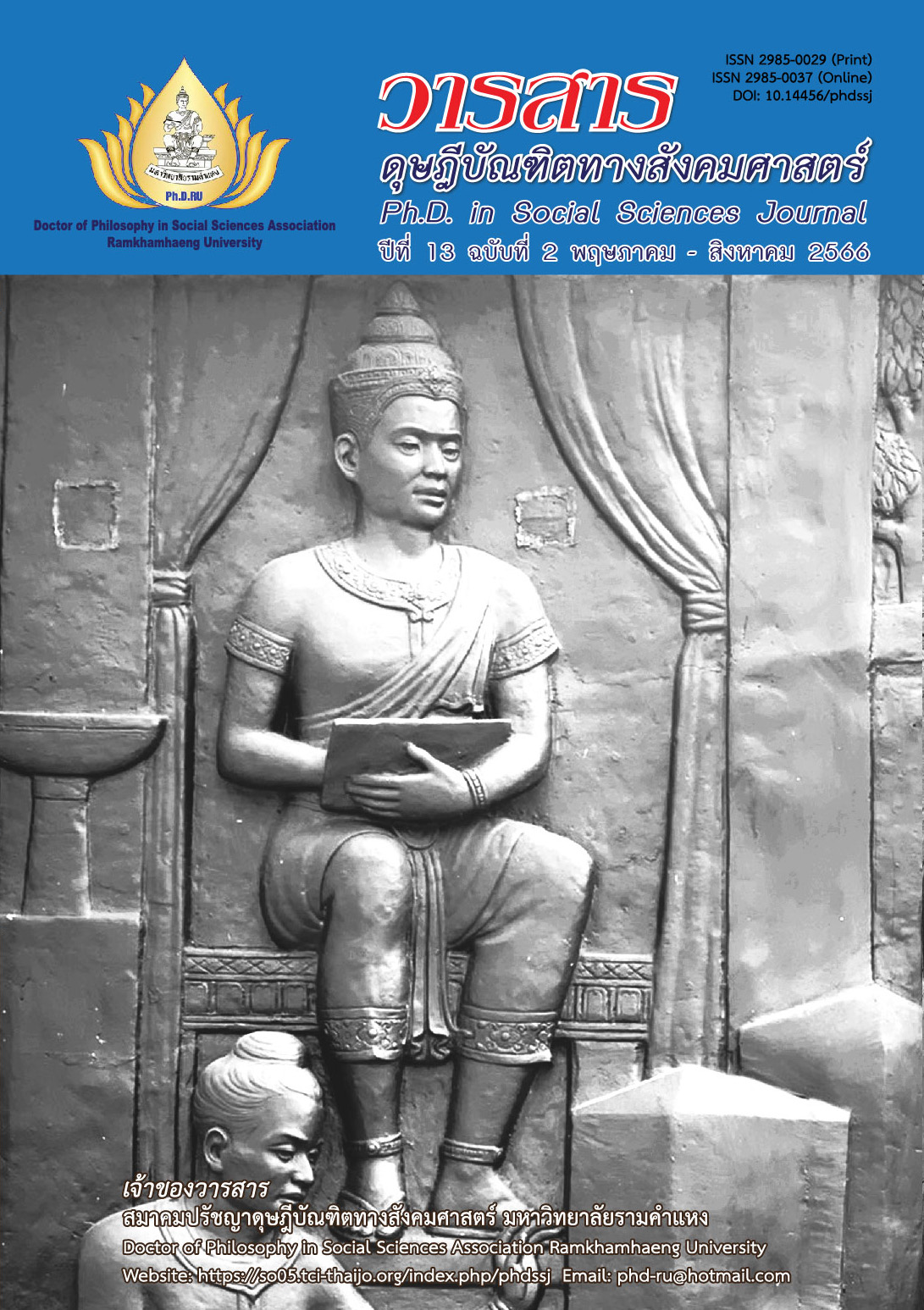The Imagined Communities of Malay Muslims in the Three Southern Border Provinces of Thailand
Main Article Content
Abstract
This academic article aims to establish a new body of knowledge based on an analysis of the imagined Malay Muslim communities in Thailand’s three southern border provinces (Yala, Pattani, and Narathiwat) from the perspective of a concept theory in which holistic integration with Islamic concepts is at the core of the analysis.
Findings are as follows: The creation of an imagined community in the three southern border provinces of Thailand was a factor of identity along with numerous other factors, including history, ethnicity, language, education, religion, culture, politics, and governance, social structure, and globalization integration with the Muslim and Islamic world. The context of these appeared to be motivating individuals and elite’s imagination to create imagined communities through discourse to build an Islamic community or Islamic nations (Ummah) through a concept known as “Fundamentalism,” which means returning to the community society of the Prophet Muhammad’s (PBUH) era, when the Muslim community was peaceful, peaceful, and just according to the Islamic way. Therefore, the process of establishing such a community society must utilize existing “Islamic movements” (propaganda activities). The pattern from such a phenomenon created an imagined community because varying interpretations, there were both benefits and drawbacks. Conflicts may result from some interpretations of semantic approaches that go beyond what is required. Nevertheless, a significant number of these practices contributed to positive social development, demonstrating the actual dynamics of all societies, which vary based on context, time, and other factors, as well as the emergence of imagined communities in Thailand’s three southern border provinces.
Article Details

This work is licensed under a Creative Commons Attribution-NonCommercial-NoDerivatives 4.0 International License.
Academic articles, research articles, and book reviews in the Ph.D. in Social Sciences Journal are author’s opinions, and not the publisher’s, and is not the responsibility of the Ph.D. in Social Sciences Journal Philosophy Association, Ramkhamhaeng University. (In the case that research is done on human, the researcher has to be trained in Ethics for Doing Research on Human Training and has to produce the evidence of the training).
References
Anderson, B. R. O. (1991). Imagined communities: Reflections on the origin and spread of nationalism. Verso.
Askew, M. (2007). Conspiracy, politics, and a disorderly border: The struggle to comprehend insurgency in Thailand’s deep south. Institute of Southeast Asian Studies.
Bougas, W. A. (1994). The Kingdom of Patani: Between Thai and Malay Mandala. Universiti Kebangsaan Malaysia, Institut Alam dan Tamadun Melayu.
Che Man, W. K. (1990). Muslim separatism: The moros of southern Philippines and the Malays of southern Thailand. Oxford University Press.
Huntington, S. P. (1996). The clash of civilizations and the remaking of world order. Simon & Schuster.
Jory, P. (2007). Ghosts of the past in southern Thailand: Essays on the history and historiography of Patani. National University of Singapore Press.
McCargo, D. (2008). Tearing apart the land: Islam and legitimacy in southern Thailand. National University of Singapore Press.
Phongpaichit, P. (2002). Way of life, way of fighting: The contemporary people’s movement. Truswin (Silkworm Books). [In Thai]
Pitsuwan, S. (1982). Islam and Malay nationalism: A case study of the Malay-Muslims of southern Thailand. Doctoral Thesis of Political Science, Harvard University.
Roy, O. (2005). A clash of cultures or a debate on Europe’s values?. ISIM Review, 15(1), 6-7.
Satha-Anand, C. (1987). Islam and violence: A case study of violent events in the four southern provinces, Thailand, 1976-1981. University of South Florida, The Department of Religious Studies.
Satha-Anand, C. (2005). The life of this world: Negotiated Muslim lives in Thai society. Marshall Cavendish Academic.
Suthasasna, A. (1976). The problem of the conflict in the four southern provinces. Phitakpracha. [In Thai]
Syukri, Ibrahim. (1985). History of the Malay Kingdom of Patani. Ohio University, Center for International Studies.


